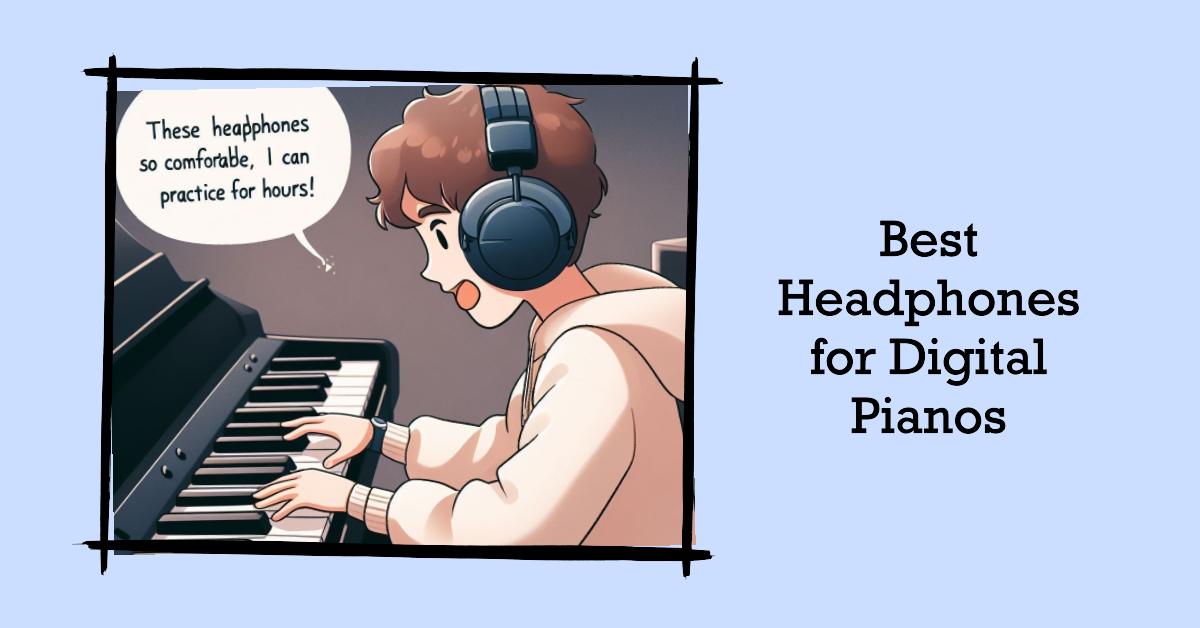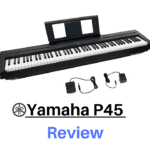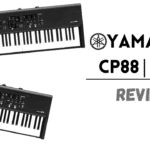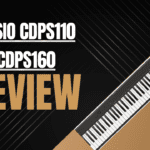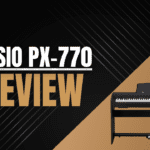Searching for the perfect headphones to use with your digital piano can feel overwhelming. There are so many options out there – how do you know which ones will actually enhance your playing and practice sessions?
As a lifelong piano player and music lover, I’ve tested a ton of headphones over the years aimed specifically at pianists. Through hours of research and hands-on experience, I’ve discovered which ones deliver the sound quality, comfort, and features you need to get the most out of your digital piano.
In this guide, I’ll share my top picks for digital piano headphones in 2023. I’ll recommend the best options across different categories, prices, and styles. You’ll learn:
- Why specialized piano headphones are worth it
- What features to look for in digital piano headphones
- My top over-ear, on-ear, and earbud recommendations
- Key factors like comfort, sound, and price to consider
- Which pairs I think are the best values for your money
My goal is to help fellow piano players discover amazing headphones that make practicing a joy. Let’s uncover the best ways to hear your digital piano – it’s time to start playing!
Why High-Quality Headphones Are Essential for Digital Pianos
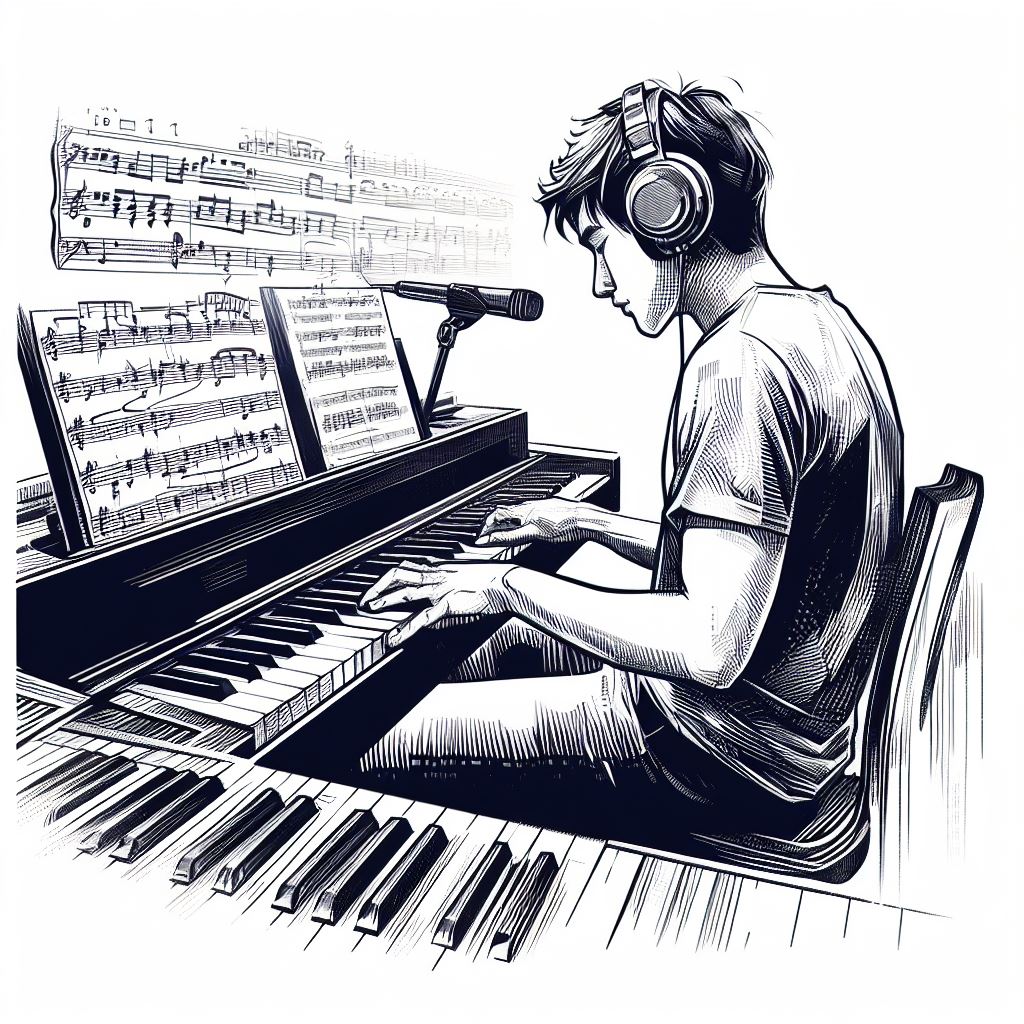
You may be wondering if it’s really necessary to get specialized headphones for piano practice. Couldn’t you just use any old pair lying around? While you can technically plug any headphones into your digital piano, you won’t get nearly the same level of experience as you would using headphones designed with piano players in mind.
Here are some of the key benefits that high-performance headphones offer:
- Precise, Balanced Audio Reproduction – Digital pianos produce a broad spectrum of frequencies from deep, resonant bass notes to soaring, crystalline high notes. You need headphones that can accurately reproduce the full frequency range without coloring or distorting the sound.
- Comfort for Extended Practice Sessions – You’ll likely be wearing these headphones for hours of daily practice. Choosing a lightweight, comfortable pair allows you to focus on your playing rather than fidgeting with your headphones.
- Noise Isolation – With effective noise isolation, it’s just you and the music rather than outside distractions diverting your attention. Closed-back over-ear headphones excel at blocking external noise.
- Realistic Spatial Sound – The right headphones give you the vivid sense that you’re sitting at a real piano rather than confining you inside your head. This immersive experience enhances practice.
Now that you understand the benefits of choosing headphones purpose-built for digital piano players, let’s explore my top recommendations across various categories and price points for 2023.
Over-Ear Headphones – My Picks for Pristine Piano Sound
Over-ear, closed-back headphone designs provide the highest level of noise isolation and acoustic performance for pianists. While bulkier than other styles, their large earcups sheathed in plush padding make them ideal for long practice sessions.
Here are my top over-ear headphone recommendations for digital piano players:
Sennheiser HD 280 Pro – Budget-Friendly Sonics
I’ve used the Sennheiser HD 280 Pros for years of piano practice. The neutral sound lets me hear every subtle detail, and the noise isolation is fantastic. The snug fit was slightly uncomfortable at first but got better over time. For the price, they are hard to beat.
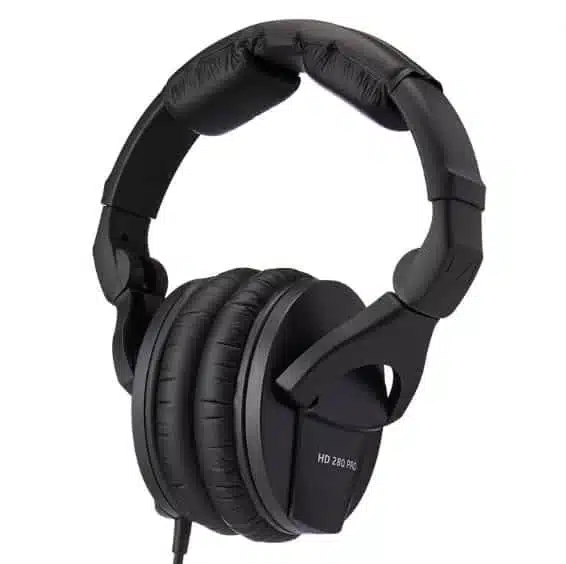
Budget-Friendly Sonics
Key Features:
- Accurate, extended frequency response optimized for studio monitoring
- Cushioned earcups and headband for comfort during extended use
- Collapsible design and rotating earcups for portability
- Coiled cable and 1/4″ adapter for connecting to digital pianos
Sound Quality: Very neutral, balanced sound profile. Excellent for hearing the nuances of your playing.
Sennheiser HD 280 Pro
PROS
- Affordable price under $100
- Very flat, neutral sound profile
- Excellent noise isolation
- Comfortable padded earcups
CONS
- Tight clamping force takes time to break in
- Non-removable coiled cable
Audio-Technica ATH-M40x – Crisp, Balanced Sound
I was impressed by the mid-range clarity of the ATH-M40x headphones – they reveal all the intricacies in piano compositions. My ears did get slightly sore after longer practice sessions due to the shallow earcups. But overall an excellent studio monitoring headphone for pianists.
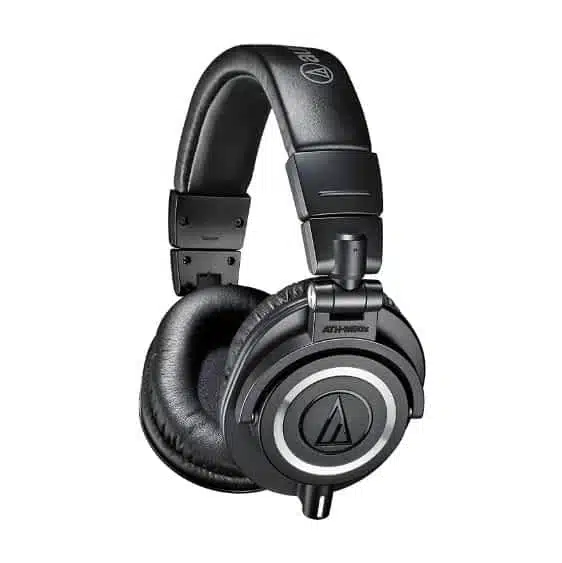
Crisp, Balanced Sound
Key Features:
- Proprietary 45mm large-aperture drivers deliver pristine audio.
- Tuned for incredibly accurate mid and high-frequency response.
- Circumaural design seals in sound for superior isolation.
- Durable professional-grade materials built to last.
- Detachable cables (coiled and straight) included.
Sound Quality: Clear, focused sound with exceptional mids and highs perfect for piano.
Audio-Technica ATH-M40x
PROS
- Tuned flat response perfect for piano
- Durable construction
- Detachable cables
- Affordable around $100
CONS
- Earcups can get uncomfortable after 1-2 hours
- Less noise isolation than some alternatives
Sony MDR-7506 – Crisp, Balanced Sound
The Sony MDR-7506 have been my go-to pair for years. I’m continually amazed by the detailed sound reproduction, especially considering the affordable price. The soft earpads allow me to practice for hours without any discomfort or fatigue. While the coiled cable can restrict movement at times, it delivers superb audio quality. For the price, the MDR-7506 are hard to beat.

Crisp, Balanced Sound
Key Features:
- Wide frequency response delivers accurate piano reproduction.
- Soft earpads keep you comfortable during extended sessions.
- Coiled cable allows freedom of movement.
- An industry standard for decades despite its affordable price.
Sound Quality: Detailed sound across the entire spectrum. Superb transient response.
Sony MDR-7506
PROS
- Detailed sound quality
- Comfortable earpads for extended use
- Industry standard for decades
- Affordable around $100
CONS
- Coiled cable some may find restrictive
- Less noise isolation than closed-back models
Beyerdynamic DT 770 Pro – Immersive Soundstage
I saved up for the Beyerdynamic DT 770 Pro headphones and was blown away. The soundstage makes me feel transported right to my piano bench during practice. The velour earpads are so soft I barely notice them on my head even after hours of playing. They are an investment but deliver an unparalleled piano experience.
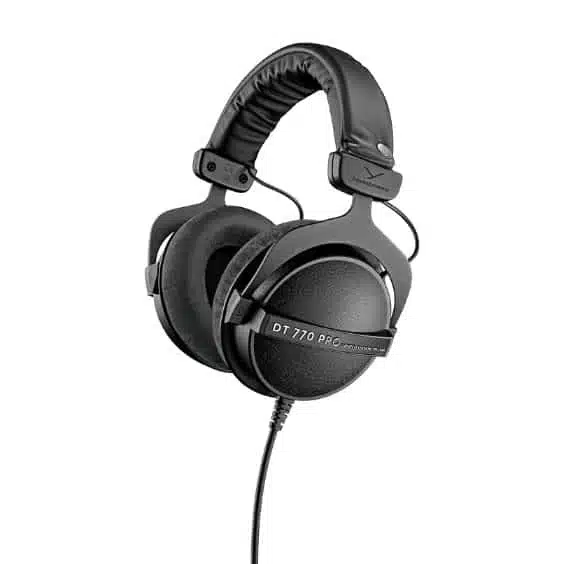
Immersive Soundstage
Key Features:
- Plush velour earpads provide sublime comfort during extended sessions.
- Spatial soundstage creates an utterly realistic piano presence.
- Closed-back design offers excellent noise isolation.
- Available in 32, 80, and 250 ohm impedances.
Sound Quality: Full, warm, exceptionally clear sound. The expansive soundstage is the star of the show.
Beyerdynamic DT 770 Pro
PROS
- Exceptionally clear, warm sound
- Plush velour earpads
- Realistic spatial soundstage
- Great noise isolation
CONS
- On the pricier side at $150+
- Sound leakage at higher volumes
- Non-removable coiled cable
On-Ear Headphones – Lightweight Portable Options
On-ear headphones offer a more compact, portable alternative to over-ear models, though with some trade-offs in noise isolation. However, the following picks provide impressive sound quality in slimmer form factors ideal for travel.
Status Audio CB-1 – Great Budget Pick
For an affordable on-ear option, the Status Audio CB-1 punch above their weight class. I was impressed by the transient response and clarity for piano. The clamping force did cause discomfort after 45-60 minutes of continuous use. But at their price, they deliver great piano sound in a portable package.
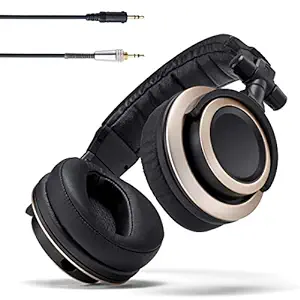
Great Budget Pick
Key Features:
- 50mm drivers deliver excellent clarity across the frequency spectrum.
- Closed-back design provides respectable noise isolation for an on-ear pair.
- Padded headband and earcups for comfort.
- Detachable cable with 1/8” and 1/4” adapters.
Sound Quality: Neutral, balanced, and clear. Superb transient response.
Status Audio CB-1
PROS
- Neutral, balanced sound
- Good noise isolation for on-ear design
- Budget-friendly at around $80
CONS
- Clamping force causes discomfort over time
- Less noise isolation than over-ear models
Yamaha HPH-50B – Tailored for Piano
As an on-ear model designed specifically for piano players, the Yamaha HPH-50B delivers. I loved the clear mids and sparkling highs tailored for piano reproduction. They remained comfortable even during 2+ hour practice sessions. My only gripe was some sound leakage when playing loudly. But overall an awesome piano headphone.
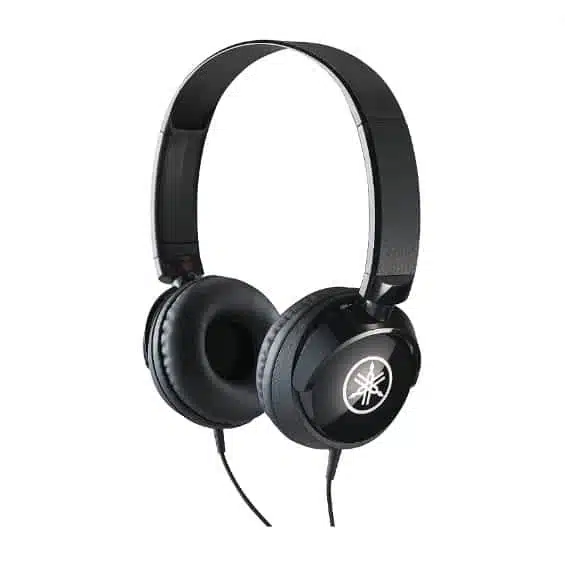
Tailored for Piano
Key Features:
- Lightweight and comfortable for extended wear.
- Tuned frequency response optimized for piano.
- Includes 1/4” adapter for connecting to digital pianos.
- Available in black or white color schemes.
Sound Quality: Clear mids and bright highs with enhanced low frequencies perfect for piano.
Yamaha HPH-50B
PROS
- Lightweight and comfortable
- Tuned for piano with enhanced low end
- 1/4″ adapter for digital pianos
CONS
- Less noise isolation than closed-back over-ears
- Sound leakage at higher volumes
Key Factors to Consider When Choosing Digital Piano Headphones
While personal preferences will vary, there are several important factors to keep in mind when selecting headphones to use with your digital piano:
- Comfort – Look for soft, well-padded earcups and headband that don’t cause discomfort during long practice sessions. Prioritize lightweight models.
- Sound isolation – Closed-back over-ear headphones block outside noise best for an immersive experience. On-ear headphones leak in more sound.
- Sound quality – Seek headphones with flat, accurate frequency response to hear the nuances of your playing.
- Impedance – Low impedance headphones (under 50 ohms) don’t require extra amplification, making them ideal for digital pianos.
- Adapter – Choose headphones with a 1/4″ adapter to easily connect to your digital piano.
- Durability – Look for sturdy construction with detachable, replaceable cables and quality materials.
- Price – Set a budget, but note higher-priced headphones typically provide better sound. Great options exist under $150.
By evaluating headphones across these criteria, you can select the best pair tailored for your specific needs and digital piano setup. Prioritize sound quality and comfort above all else for the optimal listening experience during practice and performance.
Conclusion – My Top Recommendations for Piano Players

After reviewing a wide selection of headphones tailored for digital piano use, a few models stand out as my top recommendations for pianists in 2023 based on sound quality, comfort, and value:
Top Pick Overall: Beyerdynamic DT 770 Pro
The Beyerdynamic DT 770 Pro over-ear headphones are my number one choice for their unparalleled soundstage and velour earpad comfort. Their spatial imaging makes me feel transported right to my piano bench, and they can be worn for hours without fatigue. Though priced over $150, they are worth the investment for a sublime piano listening experience.
Best Budget: Status Audio CB-1
If you’re looking for quality on a budget, the Status Audio CB-1 on-ear headphones punch far above their $80 price point. They deliver balanced, clear piano sound in a slim portable design. For affordable critical listening, the CB-1 are hard to beat.
Best Under $100: Sennheiser HD 280 Pro
For under $100, the Sennheiser HD 280 Pro combine neutral piano sound quality with excellent noise isolation. Their comfortable padded earcups and collapsible design make them a versatile budget pick.
While everyone’s needs and preferences differ, I hope this guide gives piano players a great starting point for choosing the best headphones to enhance your digital piano practice sessions. Listen across a range of models to determine what sound signature and features suit your playing style. Happy listening!
FAQs
Q: What are the best headphones for digital pianos in 2023?
A: The best headphones for digital pianos in 2023 are the ones that provide high-quality sound, comfort, and durability. Some popular options include the Beyerdynamic DT 770 Pro portable headphones, studio headphones, closed-back headphones, and open-back headphones. It ultimately depends on your personal preferences and budget.
Q: What are the best closed-back headphones for digital pianos?
A: The best closed-back headphones for digital pianos are headphones that provide excellent noise isolation and prevent sound leakage. These types of headphones are ideal for practicing in a quiet environment. Some recommended models include the Yamaha RH1C portable headphones and studio headphones.
Q: What are the best open-back headphones for digital pianos?
A: The best open-back headphones for digital pianos offer a spacious and natural sound. They are designed to provide a wider soundstage and are suitable for those who prefer a more immersive listening experience. Some top choices include studio headphones with an open-back design.
Q: How do I choose the right headphones for my digital piano?
A: When choosing headphones for your digital piano, consider factors such as sound quality, comfort, durability, and budget. Determine whether you prefer closed-back or open-back headphones, and consider factors like frequency response, impedance, and driver size. It’s also helpful to read reviews and try out different models if possible.
Q: Can I use any headphones with my digital piano?
A: Yes, you can use any headphones with your digital piano as long as they have the appropriate connection. Most digital pianos have a standard 3.5mm headphone jack, so any headphones with a compatible connector can be used. However, for the best audio quality, it is recommended to use headphones specifically designed for digital piano use.
Q: What is the difference between closed-back and open-back headphones?
A: Closed-back headphones have ear cups that are fully sealed, which helps to block out external noise and prevent sound leakage. This makes them ideal for practicing in a quiet environment. Open-back headphones have ear cups with perforations or vents, allowing for better airflow and a more natural sound. They provide a wider soundstage but may not isolate noise as effectively.
Q: Are wireless headphones suitable for digital pianos?
A: Yes, wireless headphones can be suitable for digital pianos. Bluetooth headphones, for example, offer the convenience of wireless connectivity and freedom of movement. However, it’s important to consider factors like audio latency and battery life when using wireless headphones for digital piano playing.
Q: What are the best studio headphones for digital piano players in 2023?
A: The best studio headphones for digital piano players in 2023 should provide accurate sound reproduction and comfort for long playing sessions. Some popular choices include studio headphones with a closed-back or open-back design, such as the Yamaha RH1C portable headphones. Ultimately, the best choice will depend on your personal preferences and budget.
Q: What are the benefits of using headphones for digital piano playing?
A: Using headphones for digital piano playing provides several benefits. They allow for quiet practice, especially when practicing at night or in noise-sensitive environments. Headphones also provide more accurate sound reproduction and help isolate distractions, allowing you to focus on your playing. Additionally, they can enhance the overall listening experience, particularly when using high-quality headphones.

